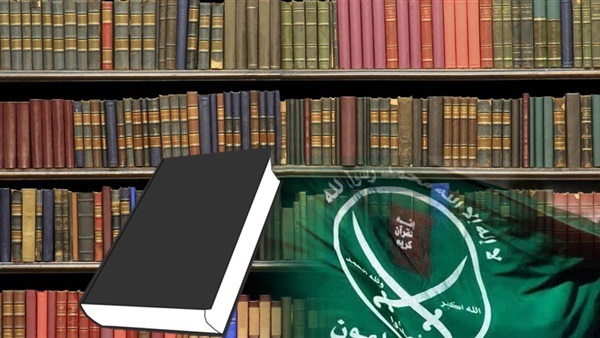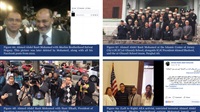«Rome» as the target of the invasion. Reading in the most dangerous educational books of the Brotherhood

The literature and writings of the
Muslim Brotherhood are full of many of the free speeches about the caliphate
and its role in establishing an Islamic state!
But an in-depth look at what this
group's thinkers produce clearly reveals that they are taking this idea as a
way to legitimize violence against innocents and to control states.
The Brotherhood does not know or ignore
that there are no legitimate texts, indicating that the Caliphate is the only
image of Islamic regimes.
The experience of the caliphate was not
successful except in rare periods of time in which it was associated with the
person of the ruler not by the caliphate as a system. Which is an evidence that
it is all about the manner of governance and the policy of the ruler, and the
caliphate has no role in this context.
The way to the Brotherhood:
The previous title refers to a book,
issued by a member of the muslim brotherhood of the Yemeni nationality, named Hussein bin Mohsen
Ali, that tackles the idea of legitimizing
violence against society. In order to recognize the Caliphate as the
Brotherhood is chosen to assume the responsibility to lay the foundations of
this system, as a representative of the Muslims.
The establishment of the brotherhood:
The author of the book, Hussein Bin
Mohsen, points out in his book "The Way to the Brothers" that a
Muslim community should be established in general and clearly states that the
"Brotherhood" is the representative of the world's Muslim masses.
In order to restore the Caliphate, as if
Muslims can only rise by restoring the Caliphate, and that caliphate can not be
restored only without the Muslim Brotherhood. These are direct messages that
the author seeks to guide to young people, so as to ensure complete control
over their minds.
Taqiya:
On the way to the Brotherhood, the
Yemeni writer recorded his steps through the pages of the book to reach his
stated goal: that all roads lead to the Brotherhood. If there is no force and
there is a climate of violence, it is temporary until empowerment and exclusion
and violence against those who disagree.
He adds: "The reluctance of all
Islamic countries to arbitrate the law of God, and raise the slogan of jihad,
because it promotes the vice, and prevents the virtue, and suppresses those who
seek to reverse what they want.
And those who what they want in peaceful
coexistence with them, are wrong and they have to repent and ask forgiveness of
God. Which shows that they accuse people with charges without evidence, one of
the elements of the Brotherhood's approach to the manufacture of enemies.
The author points out that every land
under the banner of the community of the brotherhood is necessarily a court of
justice, Islam, and peace and vice versa. Every land not under its rule is a
place of injustice, which must be conquered so that everyone becomes one state
under the banner of the Muslim Brotherhood.
He explains the main goal by saying:
"To mankind to worship one Lord,
and lead the principle of the promotion of Virtue and Prevention of Vice, and
remove sedition from the earth, and for the brotherhood conquer Rome, the
capital of Italy."
One of the strange points in this book
is the boldness of the writer to limit the Islamic groups in the Muslim
Brotherhood, and in a clearer sense, deny the Islamic character of any group
other than those that he belongs to it.
The author emphasizes this meaning by saying:
"The multiplicity of groups in the nation is invalid and must be
eliminated, and the efforts of the whole nation must be in one form and in one
direction, which is the Brotherhood."
This comes without explaining why the
Brotherhood owns the truth alone? Why do not they merge into other groups? Why
should everyone obey them alone, and it is not permissible for anyone else to
demand the same request?
At the end of the book, the writer goes
back to assert that the brotherhood is the only saviour of Islam from its
demise. And that without joining it, there will be no Islamic renaissance in
the short or long term.









